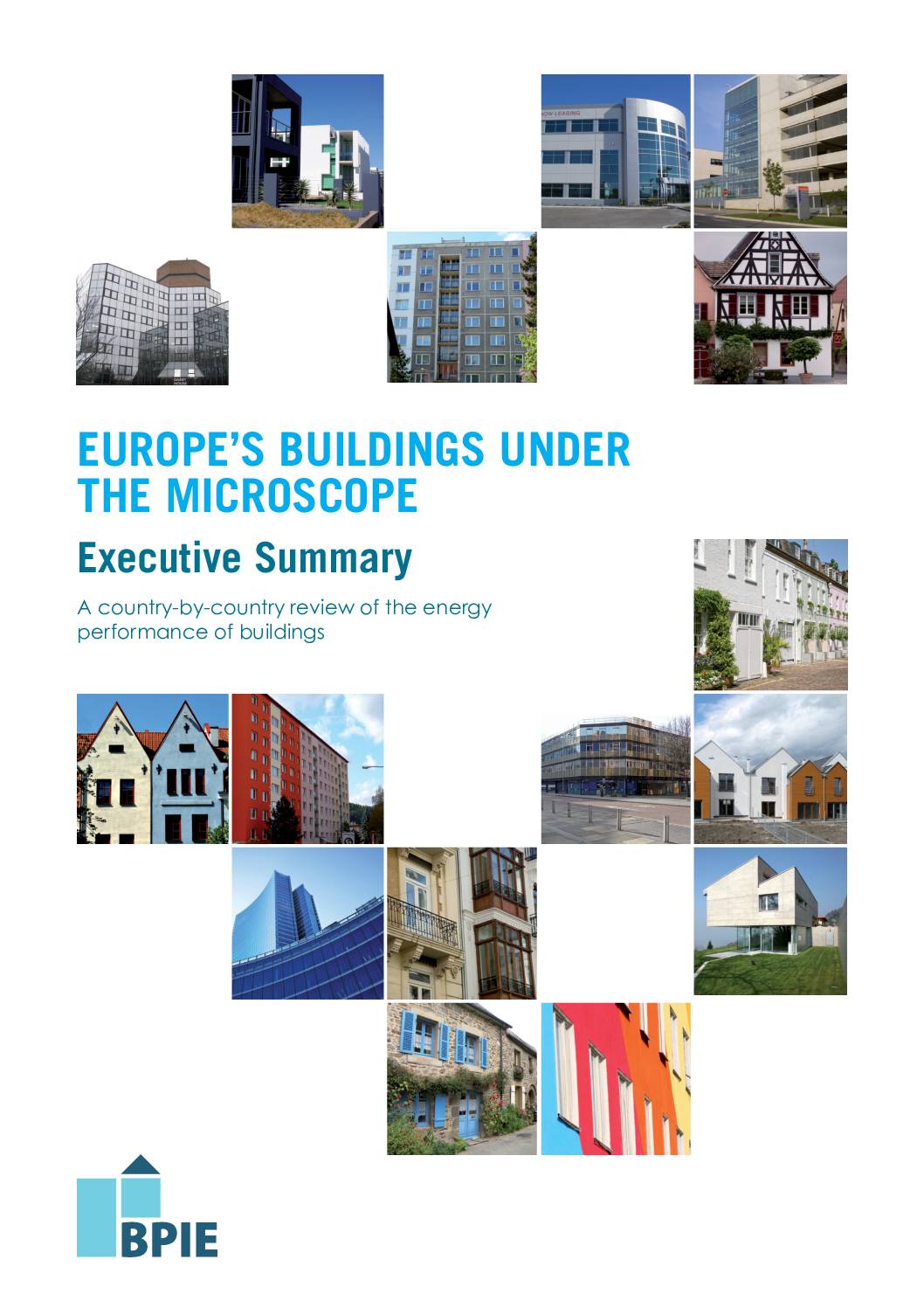From the emotional to the architectural value, buildings occupy a key place in our lives and society as a whole. Yet, the energy performance of our buildings is generally so poor that the levels of energy consumed in buildings place the sector among the most signifi cant CO2 emissions sources in Europe. While new buildings can be constructed with high performance levels, it is the older buildings, representing the vast majority of the building stock, which are predominantly of low energy performmance and subsequently in need of renovation work. With their potential to deliver high energy and CO2 savings as well as many societal benefi ts, energy effi cient buildings can have a pivotal role in a sustainable future.
Achieving the energy savings in buildings is a complex process. Policy making in this fi eld requires a meaningful understanding of several characteristics of the building stock. Reducing the energy demand requires the deployment of eff ective policies which in turn makes it necessary to understand what aff ects people’s decision making processes, the key characteristics of the building stock, the impact of current policies etc.
Amid the current political discussions at EU level, BPIE has undertaken an extensive survey across all EU Member States, Switzerland and Norway reviewing the situation in terms of the building stock characteristics and policies in place. This survey provides an EU-wide picture of the energy performance of the building stock and how existing policies infl uence the situation. The data collected was also used to develop scenarios that show pathways to making the building stock much more energy effi cient, in line with the EU 2050 roadmap.
Share this

Sectors: Buildings, Cross cutting, Finance, Industry
Country / Region: Europe
Tags: building types, carbon dioxide, energyIn 1 user collection: Building Efficiency Accelerator: General Resource Collection
Knowledge Object: Publication / Report
Published by: Buildings Performance Institute Europe
Publishing year: 2011
Author: Buildings Performance Institute Europe
